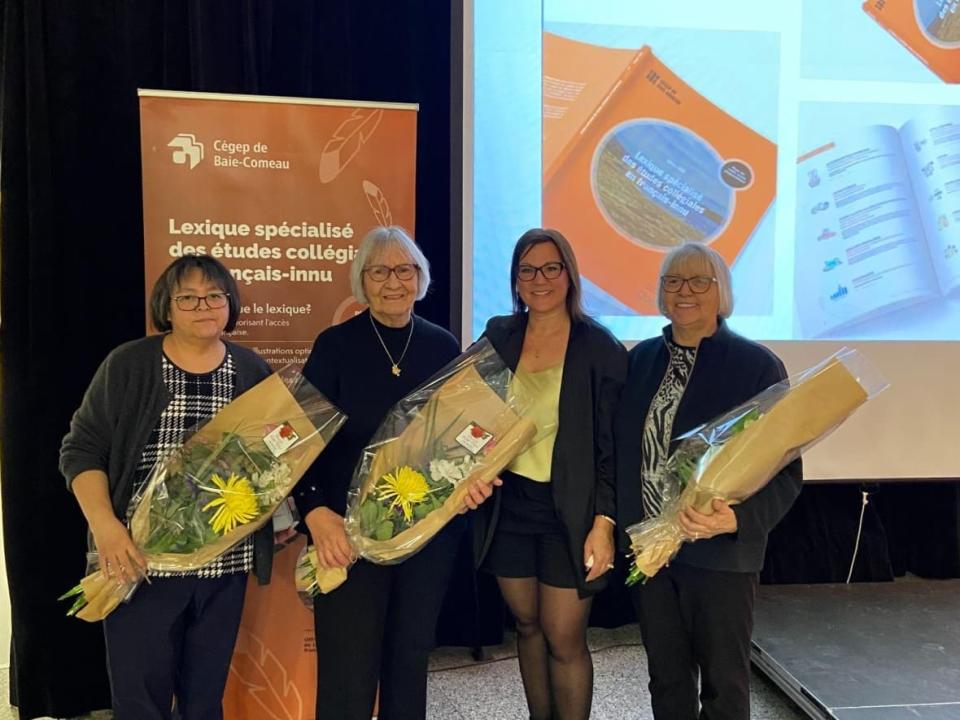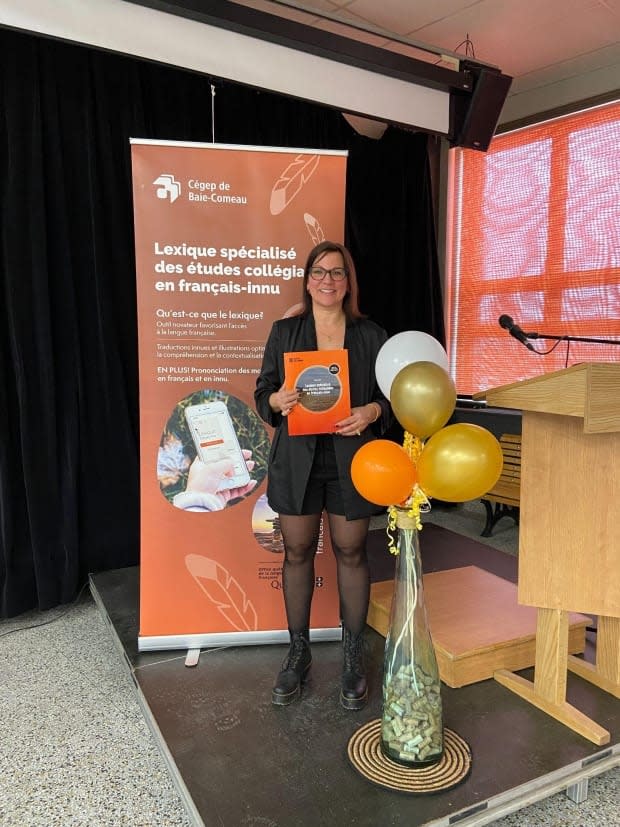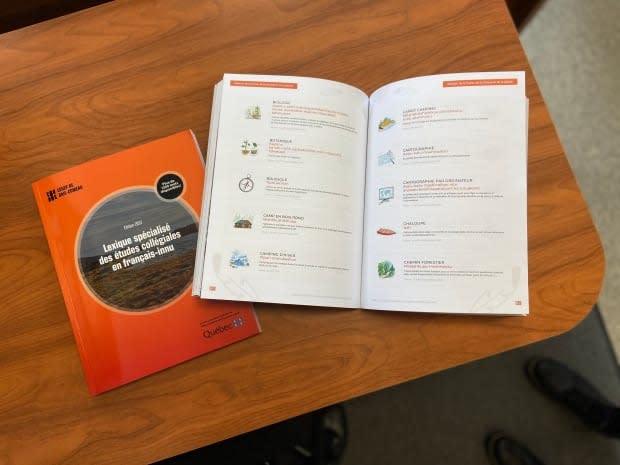
The first time Julie Maltais flipped through the newly printed dictionary — full of 1,350 words translated from French into Innu — she felt a rush of pride.
Maltais, an educational consultant specialized in French language with the Cégep de Baie-Comeau, worked on the project — she calls it her baby — for nearly four years.
When Maltais came to Baie-Comeau five years ago, new to the job, she says she tried to identify barriers in the classroom and figure out how to support Innu students. She realized language was a big barrier.
"I was talking with teachers and they were pointing [out] that the vocabulary is hard to understand because they don't really have those words in their language," said Maltais.
"So that was the first idea … To make the French words become more accessible to the Innu students."
About 60 Innu students enrol in the post-secondary institution every year, says Maltais. The team was able to identify where the need was and, alongside teachers, choose every word to be translated into Innu.
As of this month, the lexicon is available online and in print for students and the public. It translates technical words used in nursing, social science, early childhood education or policing into Innu and includes recorded pronunciations.
Two-thirds of the terms 'don't exist in Innu'

When Maltais first discussed the possibility of the project, she said she could see in the team's eyes that this kind of resource could change things for students.
One of the three Innu translators who worked on the project with Maltais, Hélène St-Onge, shared how she wished she had the resource when she was in school.
"She went to university and she had to struggle with many specific words," said Maltais.
St-Onge is a project manager for language and culture with the Innu Band Council of Pessamit, located south of Baie-Comeau.
She said part of what made the job of translating these technical terms difficult is the descriptive nature of the Innu language.
"Innu is a language of tangibles, so abstract terms are hard to translate, we have to paraphrase those terms," said St-Onge. "It took a lot of time on our part, for our team. But I saw the potential for this project, for Indigenous students and their success in school."
Working on the translations up to three times per week, St-Onge says the project was labour intensive. She verified every word and consulted elders on their thoughts on the translations.
She says most of the translations in Innu describe the definition of a French word, rather than the word itself.
"There are so many terms … that don't exist in Innu. Probably two-thirds of the terms we translated don't exist in Innu. So we have to do a lot of research to have the best possible translation and to explain the term," said St-Onge.
"For the word 'asset' in the program of social sciences the definition is tangible or intangible property that has a financial value. So how we translated it was, eshpitelitakuanlit eshi-kanuelitak auen … Essentially what we did was we translated more the definition instead of the actual word."

Looking back at the work she and fellow Innu translators Adélina Bacon and Louise Canapé put in, she says she is incredibly proud and hopes the dictionary can inspire other nations to do the same.
"We work toward conserving our language. And this is one of the tools we can use," said St-Onge.
Non-Indigenous students 'can benefit from this too'
Maltais notes that other students who are not Innu can also benefit from this tool.
"They are talking to me about it and they're like 'I'm so happy … I can see how beautiful this language is' and they are really curious about it," said Maltais. "They can benefit from this too."
Although other universities and CEGEPs have tools for Indigenous students, Maltais says the dictionary they developed is unique. She spent time touring the province to introduce schools to this free tool that could improve students' learning.
"We want the Innu students to know that they have their place here and their language has a value and of course we want to put as many words [in] as we can so this language can just keep going and transmit from one generation to another," said Maltais.
No comments:
Post a Comment